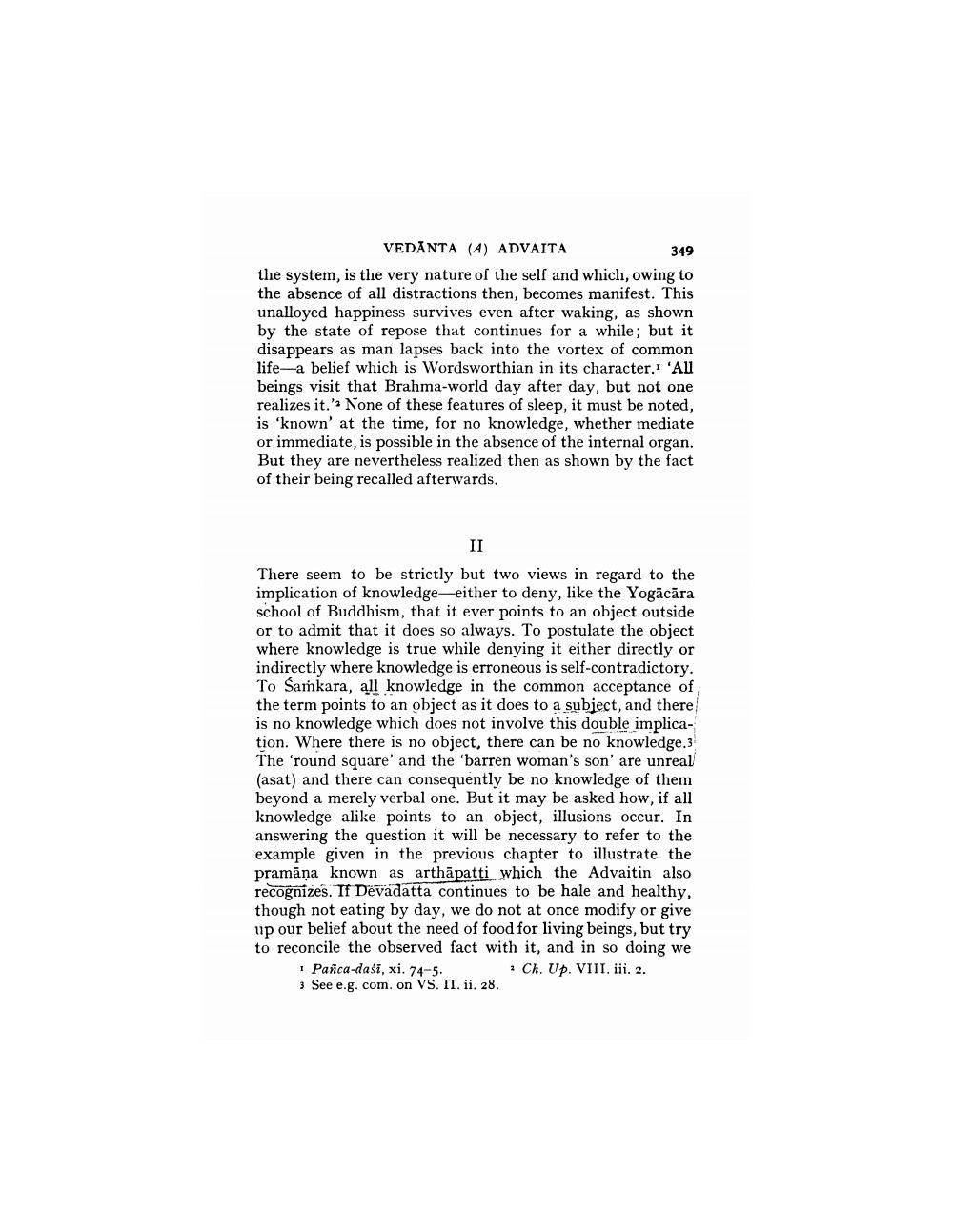________________
VEDANTA (4) ADVAITA
349 the system, is the very nature of the self and which, owing to the absence of all distractions then, becomes manifest. This unalloyed happiness survives even after waking, as shown by the state of repose that continues for a while; but it disappears as man lapses back into the vortex of common life a belief which is Wordsworthian in its character. 'All beings visit that Brahma-world day after day, but not one realizes it.' None of these features of sleep, it must be noted, is 'known' at the time, for no knowledge, whether mediate or immediate, is possible in the absence of the internal organ. But they are nevertheless realized then as shown by the fact of their being recalled afterwards,
II
There seem to be strictly but two views in regard to the implication of knowledge-either to deny, like the Yogācāra school of Buddhism, that it ever points to an object outside or to admit that it does so always. To postulate the object where knowledge is true while denying it either directly or indirectly where knowledge is erroneous is self-contradictory. To Saṁkara, all knowledge in the common acceptance of the term points to an object as it does to a subiect, and there is no knowledge which does not involve this double implication. Where there is no object, there can be no knowledge.3 The 'round square' and the 'barren woman's son' are unreal (asat) and there can consequently be no knowledge of them beyond a merely verbal one. But it may be asked how, if all knowledge alike points to an object, illusions occur. In answering the question it will be necessary to refer to the example given in the previous chapter to illustrate the pramāņa known as arthāpatti which the Advaitin also recognizes. Tf Devadatta continues to be hale and healthy, though not eating by day, we do not at once modify or give up our belief about the need of food for living beings, but try to reconcile the observed fact with it, and in so doing we 1 Panca-dasi, xi. 74-5.
Ch. Up. VIII. iii. 2. 3 See e.g. com. on VS. II. ii. 28.




